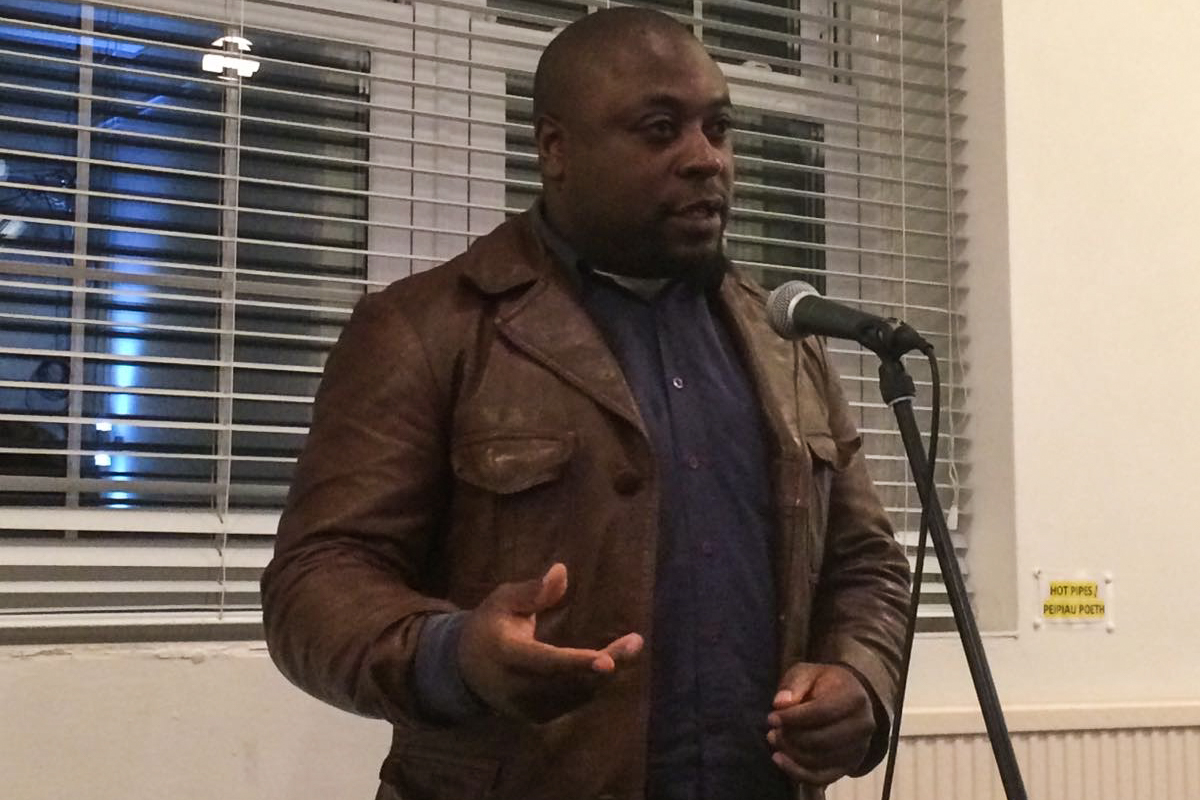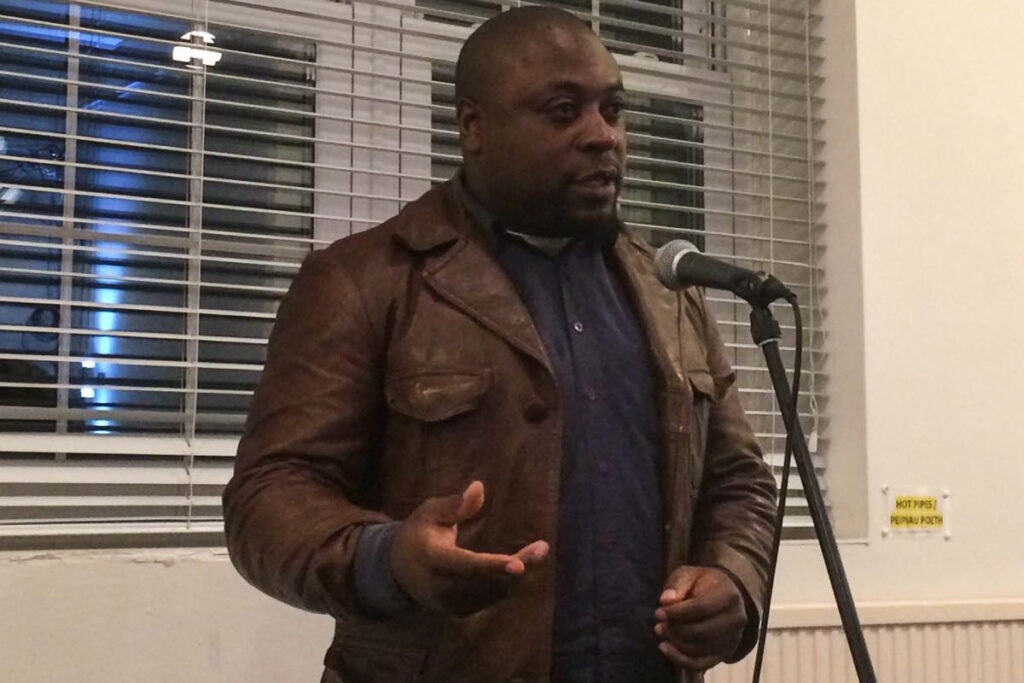 This Refugee Week, MOAS celebrates this year’s theme “Different pasts, Shared Future” by sharing the first-hand stories of people who have experienced forced migration. Today, we are proud to share a guest blog from Eric Ngalle Charles, a poet, author, playwright and Cameroonian refugee now living in Ely, Wales. Eric’s journey in search of refuge took him from Cameroon to Russia and finally to Wales, where he now lives with his wife and daughter and where he is forging a successful writing career. Here, he reflects on the experience of being far from home, and what it means to build a new life.
This Refugee Week, MOAS celebrates this year’s theme “Different pasts, Shared Future” by sharing the first-hand stories of people who have experienced forced migration. Today, we are proud to share a guest blog from Eric Ngalle Charles, a poet, author, playwright and Cameroonian refugee now living in Ely, Wales. Eric’s journey in search of refuge took him from Cameroon to Russia and finally to Wales, where he now lives with his wife and daughter and where he is forging a successful writing career. Here, he reflects on the experience of being far from home, and what it means to build a new life.
What do I remember when I left my home in such haste? What does home mean for me? I am not certain. There’s a Welsh concept of hiraeth, a longing for one’s homeland. However, Hiraeth is not just homesickness; it’s an expression of the bond one feels with one’s home and country when one is away from it.
For me now, I have lost the concept of home completely. I have slept on tree trunks, tree branches, I have used stones for pillows. Home only exists in the memory of my 18-year-old self. And though I am settled here in Wales, though I perform – though one has approbation from the perfect audience – it is still an absolute and lonely experience.
All I carried with me was my memory, mental and physical scars. These are the things that are not obvious. Moving from one country to the next, climbing mountains, crossing seas, seeking peace and finding none, is enough to force one into a state of hopelessness, if not into an abyss.
‘’Today I cried in my sleep, whilst here in exile, strangers build thrones on my father’s house, I laugh’’.
We exist, we live in a permanent state of reverie, a permanent state of limbo, fluctuating between different ‘homes’: selecting and deselecting different memories. In fact, at times there is this overwhelming desire for one to pray to the gods for them to render one blind. In this sojourn we then ask the rhetorical question, ‘Can blindness be desired?’ What have those eyes seen to desire to see no more?
I laugh.
That day, I prayed in a tongue
I did not understand,
In a language, I did not speak.
I laugh.
Rain bouncing on my back,
My wrinkles hiding the passage of time,
Living as a stranger amongst my own.
I laugh.
I do not remember my dreams,
the sun rays avoid my skin.
My shoes have holes.
I paid my debts a thousand times
to those who planned to kill me.
I laugh.
This is my grave,
I stand in a field of Daffodil
Waiting for you,
Waiting for you to bury me.
I laugh.
At times, we require the smiles of a stranger, someone to shout our names, to cross over the road, to pinch us, to remind us we are still alive.
I became a victim of human trafficking. I roamed the streets of Russia for exactly two years and two months before coming to Wales as a Zimbabwean. I could have coped with the torture, the abuse, the five attempts on my life whilst I was in Russia; I would have embraced and accepted death. For it was far easier to be tortured by strangers, survive attempted murder by strangers, than face what my father’s family did to me and my mother in Cameroon. That was a fate worse than death.
And yet, as if a mysterious courier had conveyed to the people of Wales what was taking place in my internal courts of justice, they opened the door and let me in. They effectively told me, ”Ngalle, you have washed your hands clean and can now sit with the elders”.
All the memories have served to stimulate my creativity. I now write plays, poetry and nonfiction about my life. I have been catapulted amongst the welsh Literati. Now, there’s a small corner of Wales that will forever be Cameroon, and vice versa.
You can find out more about Eric’s work here, or read his reflections on poetry and forced migration in his interview with us. Please sign up to our newsletter at the bottom of this page for all the MOAS news and updates and support our rescue missions by giving whatever you can to help us save lives at sea.

